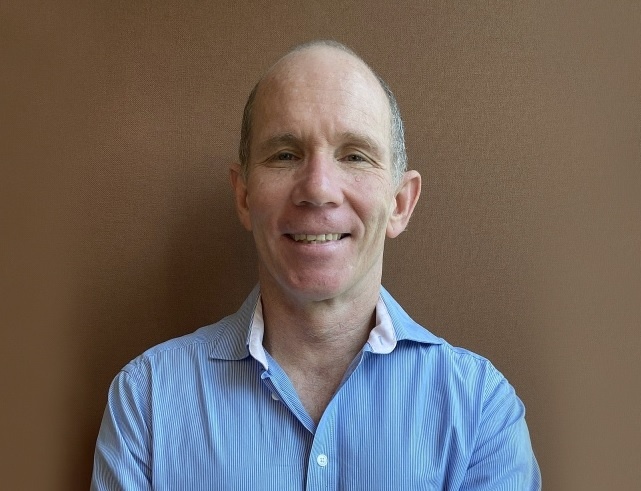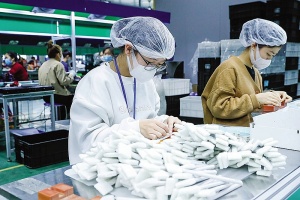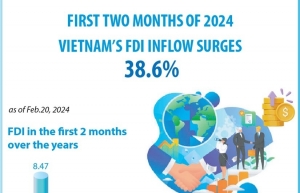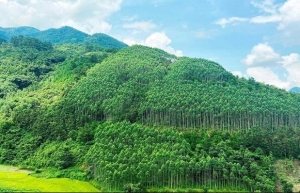Auscham chief lifts lid on Vietnam's potential
What has been the lasting impact of this 50-year partnership between Vietnam and Australia?
 |
| Simon Pugh, president of the Australian Chamber of Commerce in Vietnam (Auscham) |
One of the most significant changes has to be the increase in bilateral trade between the two countries. In 2019, Australia and Vietnam agreed to develop the Australia-Vietnam Enhanced Economic Engagement Strategy, with the aim of becoming one of each other's top ten trading partners and doubling two-way investment.
Last year, Vietnam became Australia's 10th-largest trading partner and Australia became Vietnam's seventh-largest.
Such rapid development in such a short period of time proves how much interest there is in continuing to develop this relationship.
It's also evidence that the Australian and Vietnamese governments are working closely together on policy, regional security, and other areas that are critical to ensuring that Southeast Asia continues to grow and prosper.
What opportunities are there to boost the trade relationship between the two countries?
Firstly, there's a lot of respect for Vietnam in Australia and vice versa.
Australia has a considerable Vietnamese community, and several Viet Kieu have returned to Vietnam to live and do business.
Meanwhile, Vietnam is quickly becoming an advanced country with a growing middle class. Now, we only need 20 or 25 per cent of the Vietnamese population to be in the middle class for it to be equal to Australia's entire population.
Vietnam's rapid economic development means a fast-growing customer base who demand high-quality products in consumables such as food and beverages, and in education, which Australia specialises in.
Australia has a strong vocational education training programme that trains young people in skills such as building or accounting, for which there is no need to attend university.
Australia is also renowned for its food quality and safety. The Vietnamese market has an appetite for those sorts of products, and the proximity of Australia to Vietnam means that we're in the good position to supply them.
Both governments are interested in how Vietnamese suppliers can connect with the Australian supply chain. Currently, we need to diversify the supply chain instead of relying too much on China, and Vietnam has its own diverse manufacturing base that can help us move away from there.
The Vietnamese energy market is still maturing, but it is gradually shifting from fossil fuels to more green, environmentally friendly energy. Australia has a well-established green energy industry, and we are ready to cooperate with Vietnam in this area.
Other areas where the two sides can cooperate are infrastructure development and digital transformation. These are inevitable trends as we move into the 21st century.
Opportunities will inevitably come with challenges and while Vietnam is an attractive investment destination for Australian businesses, the Vietnamese government and business community need to make more effort to promote the country to Australian investors.
Australian firms investing in Vietnam still face barriers when establishing a business, and getting work permits and temporary residence cards. Foreign-invested enterprises in general face complicated, time-consuming processes with unclear regulations.
Australians love to travel, especially to scenic spots with beautiful natural landscapes, but expenditure on tourism promotion is still far too little, so many Australians just don't think about Vietnam when planning a holiday. This is a lost opportunity and there needs to be a strategy to attract more visitors.
These issues must be streamlined because Vietnam is just one of many options for overseas investors in the region.
Can you give us more insight into what Australian investors think about Vietnam today?
When I decided to invest in Vietnam in 2012, people asked me why I chose Vietnam. They wanted to know if it was safe to do business here and even if there was electricity. And I've been here ever since.
In 2021, I became president of Auscham and I have seen a record number of inquiries from Australian businesses wanting to learn about and do business in Vietnam.
But we must remember that we are in a critical moment, so the government and business community here needs to be more dynamic and move faster to seize such opportunities.
What areas in Vietnam's economy are Australian investors most interested in?
Apart from the traditional areas of food and beverages and education, green energy and digital transformation are also of interest. To entice Australian businesses to invest in Vietnam, the Department of Foreign Affairs and Trade signed an agreement with Auscham to establish an industrial hub connecting Australian industrial groups in food, textiles, and forestry with the Vietnamese market.
Australia can supply the demand, but Vietnam needs to address its infrastructure issues, simplify procedures, and create more tax incentives.
What do you think is Vietnam's biggest selling point for a potential Australian investor?
Vietnam has a stable political system and currency, with a strong domestic economy of more than 100 million people and a rapidly growing middle class. But I would also tell them that anything is possible in Vietnam with enough enthusiasm, dedication, and hard work.
 | Vietnam woos $4.29 billion in FDI capital in first two months of 2024 An influx of foreign direct investment (FDI) into Vietnam offers positive signs for the economy, with $4.29 billion registered in the first two months of 2024. |
 | Vietnam’s FDI inflow surges 38.6 per cent in two months Total newly-registered foreign investment capital, adjusted and contributed capital to buy shares and buy contributed capital of foreign investors totalled 4.29 billion USD as of February 20, up by 38.6 per cemt compared to the same period in 2023. The disbursement of FDI capital is projected at some 2.8 billion USD, reflecting a 9.8 per cemt increase against the same period last year. |
 | Vietnam capable of earning 200 million USD per year from carbon credit trade Vietnam is capable of selling some 40 million carbon credits for a revenue of 200 million USD annually, the Department of Forestry has calculated. |
 | Vietnam's posts 2.4 per cent rise in ultra-wealthy individuals The number of ultra-high net worth individuals (UHNWIs) – those with assets of more than $30m – rose by 2.4 per cent in Vietnam last year, according to the Wealth Report 2024 compiled by property consultants Knight Frank. |
What the stars mean:
★ Poor ★ ★ Promising ★★★ Good ★★★★ Very good ★★★★★ Exceptional
Related Contents
Latest News
More News
- SpaceX appoints Vietnamese CEO to lead Starlink Vietnam operations (February 26, 2026 | 17:53)
- PM sets five key tasks to accelerate sci-tech development (February 26, 2026 | 08:00)
- Agentic AI set to reshape Vietnam’s enterprise landscape (February 10, 2026 | 12:06)
- Agro-forestry and fisheries exports jump nearly 30 per cent in January (February 09, 2026 | 17:45)
- Canada trade minister to visit Vietnam and Singapore (February 09, 2026 | 17:37)
- New tax incentives to benefit startups and SMEs (February 09, 2026 | 17:27)
- Vietnam forest protection initiative launched (February 07, 2026 | 09:00)
- China buys $1.5bn of Vietnam farm produce in early 2026 (February 06, 2026 | 20:00)
- Vietnam-South Africa strategic partnership boosts business links (February 06, 2026 | 13:28)
- Mondelez Kinh Do renews the spirit of togetherness (February 06, 2026 | 09:35)

 Tag:
Tag:


















 Mobile Version
Mobile Version